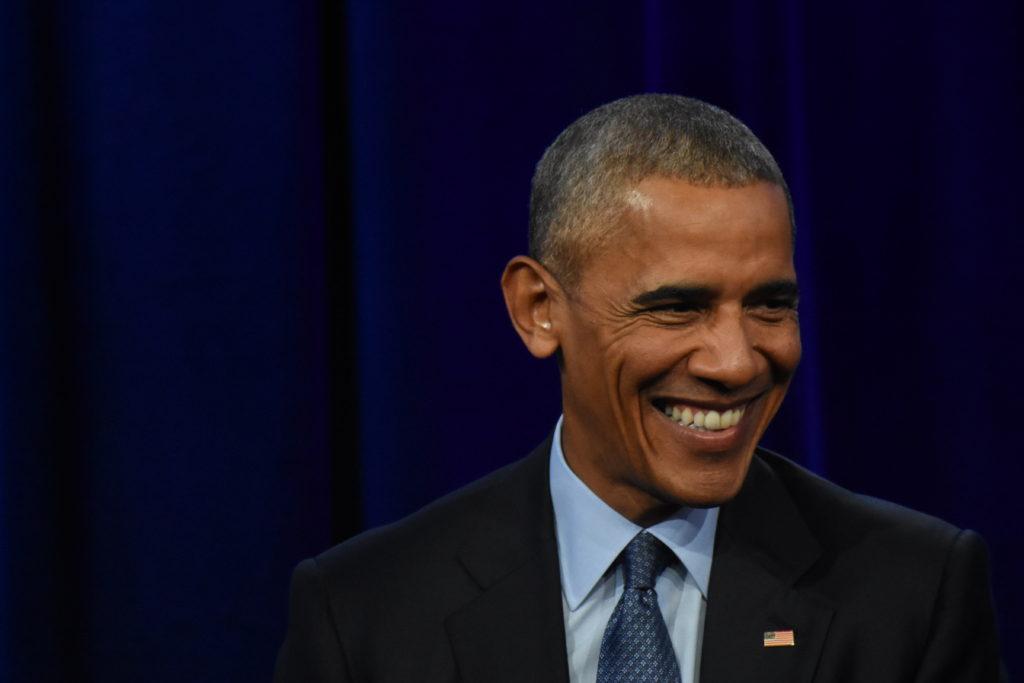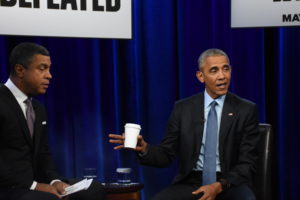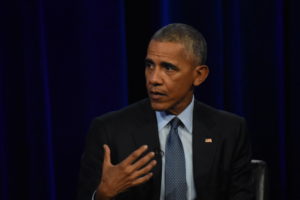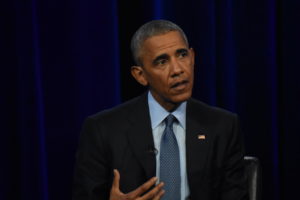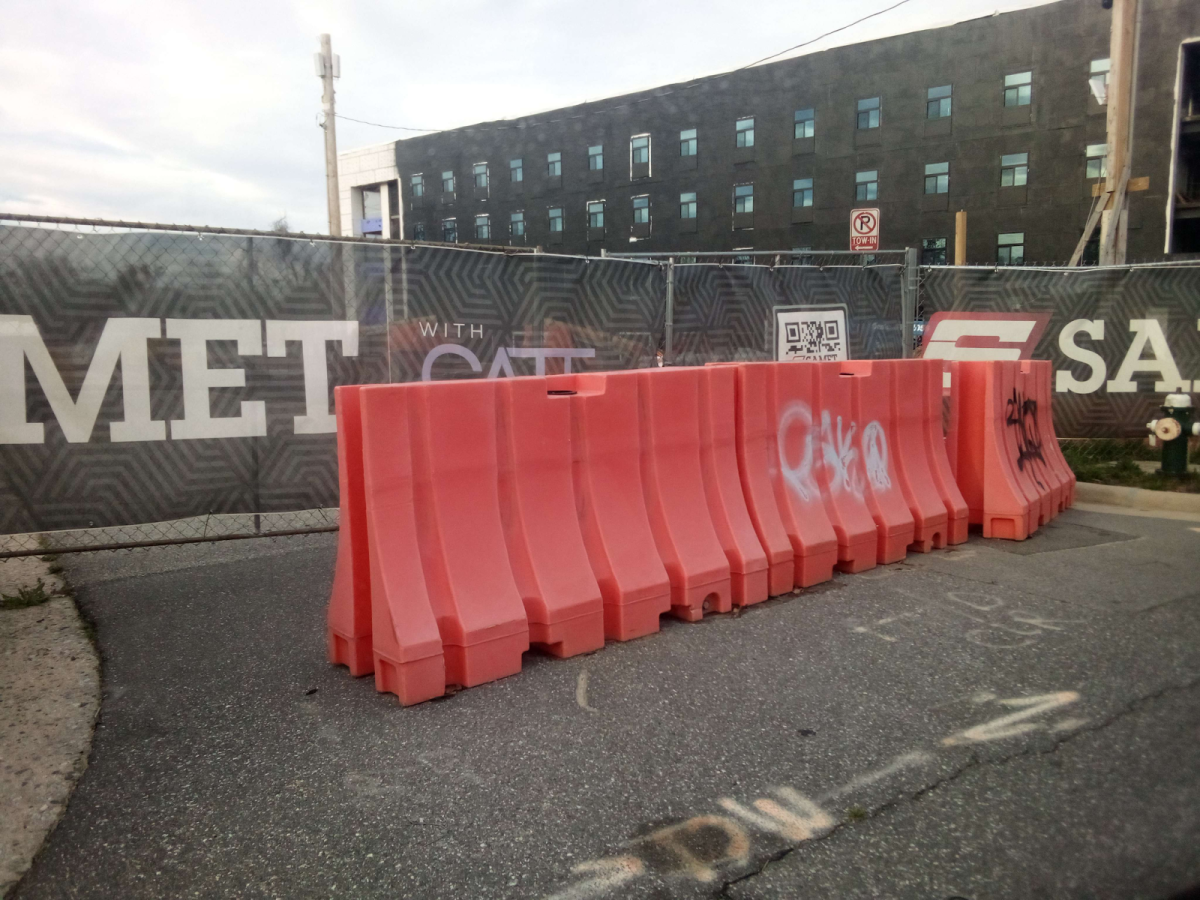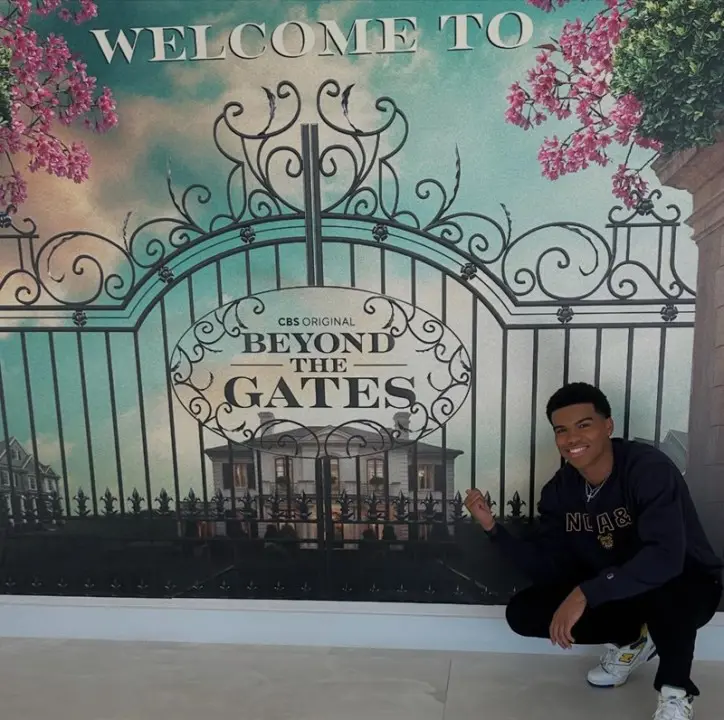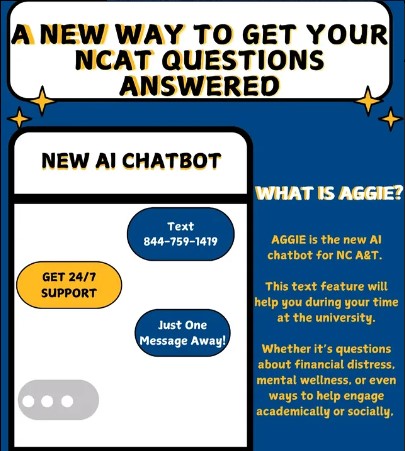BY Jana Shaw
Editor-in-Chief
During a time when race and the role of historically black colleges and universities are top priorities in the political discussion list, President Obama visits North Carolina Agricultural and Technical State University.
ESPN The Undefeated, A Conversation with The President: Sports, Race, and Achievement took place Tuesday afternoon and aired 10 p.m. Tuesday night.
The event was attended by select student leaders and athletes as well as leaders of the community. The ESPN sponsored event took place in the Alumni Center on N.C. A&T’s campus.
ESPN’s Stan Vernett hosted the conversation with the President and mediated the question and answer panel discussion.
The discussion began with Obama’s response on what it means to be “undefeated.”
Tying into the spirit of being undefeated, JOMC student Khadejah Stegall of N.C. A&T posed a question about balancing family and professionalism.
“On my death bed I will not remember any bills I passed, I will not remember any speech I gave…winning the Nobel Prize. What I will remember is holding hands with my daughters… and if you approach life with that attitude then you will appropriately invest in what’s important,” responded Obama.
The next question was posed by the television personality, Terrence J. He explained to Obama that he looked to him for inspiration and asked Obama who inspires him.
“There’s some usual suspects. Someone like Dr. King or Abraham Lincoln. I try to project the kind of burden and weight they were having to carry,” answered Obama.
“Nelson Mandela, you visit Robben Island and think about 27 years…to be able to come out after 27 years without bitterness and be able to lead your country in reconcile, then you say okay, I can deal with a Republican congress,” said Obama as the audience laughed at his response.
He added that those most influential to him are the people that he serves.
He gave the example of a letter he received from a single mom who struggles to balance paying bills and parenting her son in a tough neighborhood.
“The courage and determination that mom shows then leads me to say, I’m not going to feel sorry for myself. I’m going to work hard to make sure I’m giving her a better shot,” said Obama.
“When you feel as if what you are doing is not about you but delivering for people who put their hopes and faith in you, then you don’t want to disappoint,” he added.
The second segment shifted the discussion to race and Obama’s initiative: My Brother’s Keeper.
The segment began with a question from an Aggie Basketball player, Sam Hunt, who questioned how an athlete can find his or her place in making a change taking a stand against injustice.
Obama spoke on the two athletes that influenced him the most. Muhammad Ali and Arthur Ash. He explained how their personalities were polar opposite.
“From a personality perspective, they were completely different… yet both were transformational. Ali gave people enormous pride. Arthur got people to recognize the dignity of African Americans despite whatever was being thrown at them,” explained Obama.
He encouraged that the method is not the important part but the “commitment to use your platform to speak to the issues.”
Obama continued on with a rhetoric of activism and change as the discussion began to deal with his My Brother’s Keeper initiative.
According to Obama, My Brother’s Keeper was created “in wake of the Trayvon Martin verdict.”
“We asked each federal agency what is that you’re doing to either contribute to or solve the problem,” explained Obama.
“For example the department of education…set a track for young African American and Latino boys that didn’t guarantee success but problems. Let’s provide guidance for every school district in the nation so they can be intentional,” said Obama.
The initiative is seeing positive outcomes and gaining the support of major agencies and companies such as Sprint, who is working on providing one million homes with digital access.
“We have mentors out there providing STEM education helping young student build robots, send rockets into the sky and coding, so they understand this is a path for them,” said Obama.
A My Brother’s Keeper mentee and Aggie, Devin Edwards, questioned what was to come for the future of My Brother’s Keeper.
“We want to continue to expand. We want everybody to get involved,” Obama encouraged.
The third segment focused on the role of HBCUs and the Obama administration’s place in it.
The segment started with the question, “How do you respond to critics who think that your administration could have been more supportive or more committed to HBCUs?”
Obama spoke about his administration’s record of increasing funding to HBCUs by giving $4 billion a year to HBCU funding and increasing federal Pell grants.
“It is my belief that having incredible institutions like North Carolina A&T is a foundation stone for building a black middle class, wealth and ultimate success that will be important to the entire nation,” said Obama.
He then noted funding of schools by the state in saying, “States have significantly cut support for higher education. North Carolina being a big example, funding prisons but not funding schools.”
He closed out the third segment in saying, “If you’re really concerned about more funding in HBCUs then you better vote. You don’t have to be an engineer to figure this math out.”
The final segment was dedicated to activism.
Aggie Nhawndie Smith asked for advice on developing future activists and leaders in surrounding communities of HBCUS.
“Change happens typically not because someone on high decides that it’s going to happen but rather because people on grassroots level come together and force the system to change,” explained Obama.
Obama mentions the examples of police brutality situations. He spoke of posing questions about how to close the gap and producing transparency.
“One thing I recommend to future activists is to find out what are the specific things that are going to have an impact on things we care about. So that when you finish a protest, you are able to say here is what we want you to do,” advised Obama.
The conversation ended with Obama’s post presidency plans.
“I’m going to sleep for two weeks and then I’m going to take Michelle on a really nice vacation,” said Obama as the crowd laughed.
Obama also plans to focus “on issues [Michelle and he] care deeply about.” Most prominently developing the next generation of leaders.
The Obamas plan to continue work with My Brother’s Keeper and Let Girls Learn as well as trying to create a platform for young activists.
“At the end of the day, when you look at American history, it is young people like you who drive change and progress,” said Obama as he closed the conversation of race, sports and achievement.

